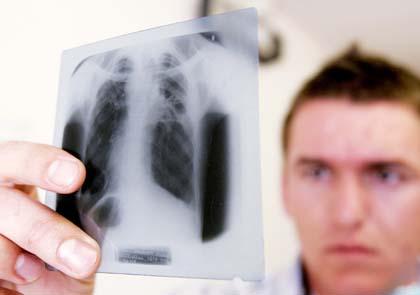By Philip Newman
While tuberculosis has been declining throughout the city, the disease has increased in Queens and health officials have urged people to get tested, promising that no one who does so will be asked about their immigration status.
The city Health Department said TB cases reached a fifth−consecutive record low in the city last year. A total of 895 cases was reported, a 2 percent decrease from the 914 cases in 2007 and a 78 percent drop from the high levels of the early 1990s.
Nevertheless, the citywide TB rate is still nearly three times the national rate of 11.2 cases vs. 4.2 cases per 100,000 people.
In the city, TB cases declined in Manhattan by 15 percent, Brooklyn by 7 percent and the Bronx by 5 percent. Cases remained stable in Staten Island.
But tuberculosis rose in Queens by 12 percent in 2008 after a decline the previous year.
The Health Department has yet to issue its neighborhood report on tuberculosis for 2008, although the previous year’s report showed that 29 percent of all TB cases citywide were in western Queens.
Monsignor Thomas Healy of Our Lady of Sorrows Roman Catholic Church in the highly diverse neighborhood of Corona, said “tuberculosis is not a particular racial, ethnic or socio−economic group’s disease — we all play a role in combating it.”
“Tuberculosis is a winnable battle,” said Dr. Chrispin Kambili, city Health Department assistant commissioner for TB control.
Kambili recently presented the latest data at the third annual World TB Day Community Forum at the Langston Hughes Branch of the Queens Public Library.
Health officials said that in the city, where immigrants make up 36 percent of the population, TB disproportionately affects non−U.S.−born residents.
In 2008, immigrants accounted for 75 percent of the city’s TB cases and almost half of the patients were people born in China, Mexico, Ecuador, the Dominican Republic or Haiti — all countries where tuberculosis rates remain high.
Health officials have begun a campaign to raise public awareness of tuberculosis, such as:
• who should get tested for tuberculosis
• those who have symptoms such as coughing, sweating, fatigue, weight loss and fever
• people who have spent a long time with someone who has active TB
• people who have recently come from or traveled to a country with a high rate of TB
• people who have HIV infection, lowered immunity or certain medical conditions such as diabetes or chronic kidney failure
• people who have worked or lived in homeless shelters, prisons or other group settings
“Brief contact with people who are sick with TB, such as on a train or bus, is unlikely to cause infection,” the Health Department said. “TB is not spread by shaking hands, sharing food or having sex. The infection is usually spread through close, daily contact.”
The Health Department said translators speaking more than 170 languages are available and added, “We do not ask about immigration status.”
For more information, call 311 or visit nyc.govâ„healthâ„tb.
Reach contributing writer Philip Newman by e−mail at news@timesledger.com or phone at 718−229−0300, Ext. 136.



































